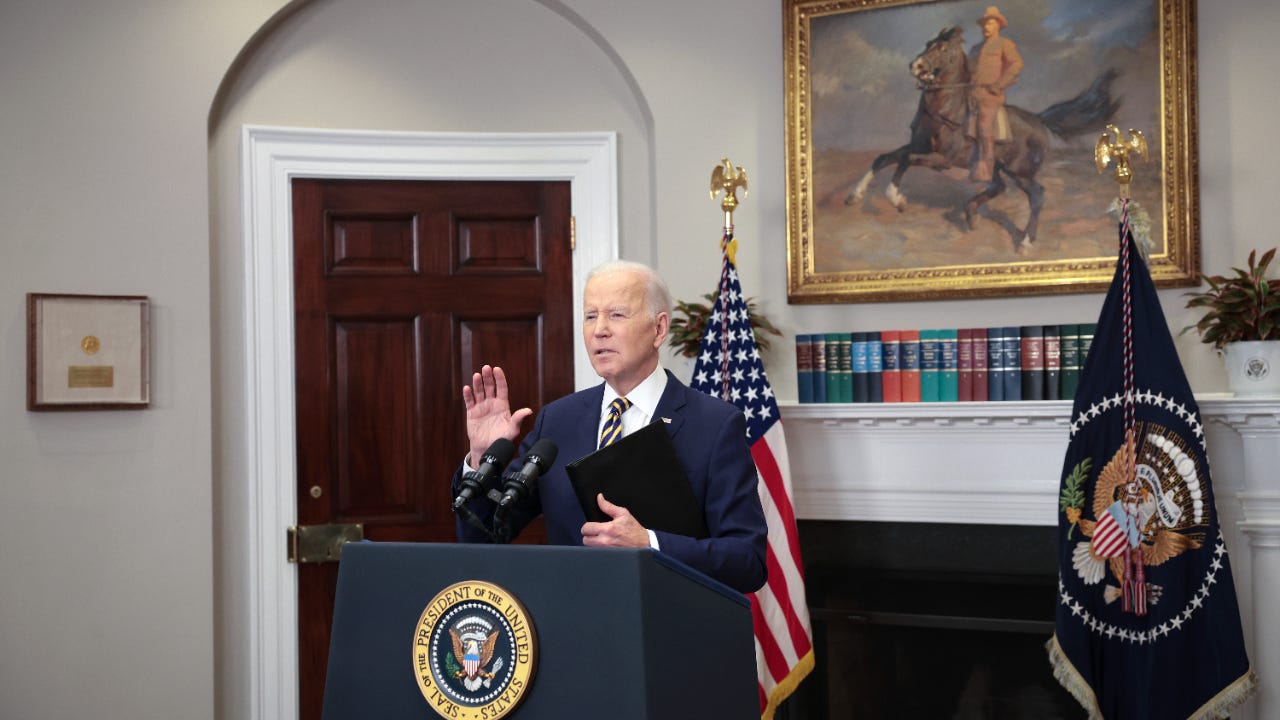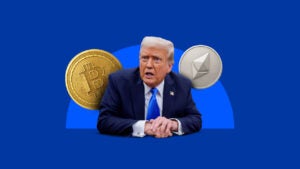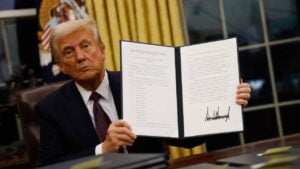Biden’s executive order on cryptocurrency – here’s what it means for you

President Joe Biden’s administration is preparing to regulate cryptocurrency. Biden signed an executive order Wednesday directing the federal government to study the impact of cryptocurrencies on American consumers, investors and businesses. This broad review of digital assets also explores the creation of a U.S. cryptocurrency, a “digital dollar.”
Federal agencies will now have months to review and prepare an assessment of these fast-growing digital currencies. According to the White House Fact Sheet for the order, the government is looking at these issues, among others:
- The risks to financial stability created by private cryptocurrencies
- Any risks to national security created by cryptocurrencies
- Issues surrounding using cryptocurrency to enable crime
- Environmental impacts involved with energy-intensive cryptocurrency mining
- The effects of cryptocurrency on economic competitiveness
In addition, the government is examining the issues involved with a digital dollar and what it could mean:
- The creation of a U.S. central bank digital currency
- Whether Congress would need to pass laws to establish a digital currency
- Any technical issues surrounding the creation of a digital currency
With the total value of all digital currencies near $2 trillion, cryptocurrency is a substantial asset class that has been largely overlooked by U.S. regulators until relatively recently. The first cryptocurrency, Bitcoin, was introduced in 2009.
Major cryptocurrencies, including Bitcoin and Ethereum, traded significantly higher on the news.
What the executive order means for crypto trading
The move to examine cryptocurrency and consider potential regulations and a larger strategy for them is long overdue. The sector has been volatile and has been full of potential for chicanery, including in one of the purportedly safe crypto classes called stablecoins, which the government has already been examining.
“This executive order is a definitive signal that we will finally get what we know is coming,” says Daniel Strachman, managing partner at A&C Advisors, in Coral Springs, Florida. Strachman says that the industry and investors have been waiting for more than a year on a clear direction from the government.
“It puts in place the foundation for regulation — something we all have expected for some time now.”
Experts say that regulation and a longer-term strategy help validate the cryptocurrency sector, at least its good actors and not those interested in engaging in illegal activities.
“This presidential executive order could kickstart the SEC and other regulatory bodies to put in place regulations for an asset class that is here to stay,” says Strachman. “With this move to put regulations in place, we are going to have more market participants, increased interest and activity — which I think is a great thing.”
While increasing regulation validates cryptocurrency, the new executive order also explores the potential for a central bank digital currency, another move that would create further confidence.
As envisioned, such a cryptocurrency is a virtual version of the U.S. dollar. While a digital dollar could validate crypto technology, it could also pose a longer-term threat to private crypto coins such as Bitcoin and Ethereum, both of whose value derives entirely from speculators’ sentiment. In contrast, a digital dollar would have the backing of the U.S. government.
Bottom line
President Biden’s executive order helps kick off the U.S. government’s serious analysis of cryptocurrency, an assessment that should ultimately lead to laws and regulations that establish a set of ground rules for the industry. Those rules should help create trust and acceptance in these markets, helping them to further develop.
Learn more:
- Best online brokers for buying and selling cryptocurrency
- Cryptocurrency taxes: A guide to tax rules for Bitcoin, Ethereum and more
- How to buy Bitcoin: 5 ways to add the popular cryptocurrency to your portfolio
Why we ask for feedback Your feedback helps us improve our content and services. It takes less than a minute to complete.
Your responses are anonymous and will only be used for improving our website.






